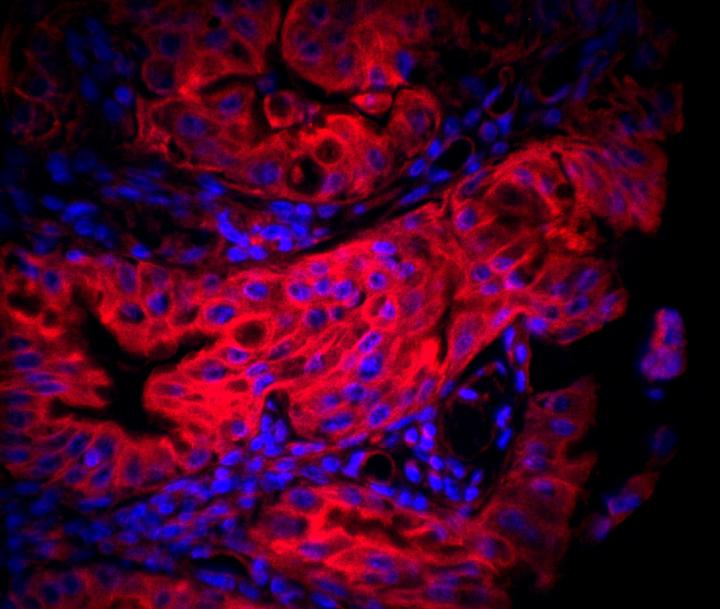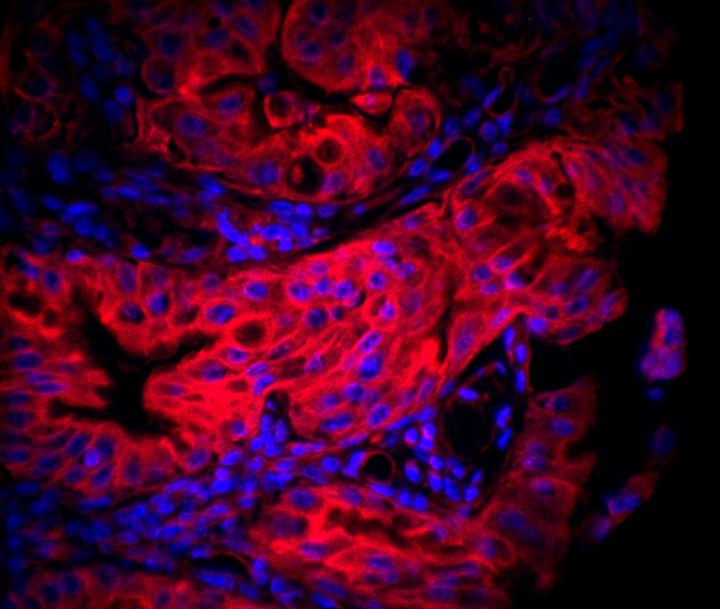
Credit: © Laurent Chatre – CNRS/Institut Pasteur
Helicobacter pylori is a bacterial pathogen that colonizes the stomach of approximately half of the world's population. Infection with H. pylori is acquired in childhood and lasts for decades. H. pylori is the main risk factor for gastric cancer and is linked to more than 80% of cases. Gastric cancer, the third most common cause of cancer-related death, is often associated with a poor prognosis because it tends to be diagnosed at an advanced stage. It is responsible for about 800,000 deaths each year worldwide.
H. pylori has several virulence factors that interact with specific targets in the cell and directly affect the severity of gastric disease. Vacuolating cytotoxin A (VacA) was previously the only main H. pylori factor known to act on mitochondria*, causing cellular membrane and organelle dysfunction and leading to cell death.
Scientists from the Institut Pasteur and the CNRS have discovered that H. pylori uses at least two additional strategies to target mitochondria. These strategies do not lead to cell death but maintain an environment that is conducive to bacterial proliferation.
Their results show that H. pylori affects both mitochondrial transport systems (used to transfer proteins into mitochondria) and the machinery for the replication and maintenance of the mitochondrial genome. The scientists also discovered that, contrary to what was previously believed, VacA is not the only H. pylori component capable of affecting mitochondria. This suggests that the bacteria may produce other mitochondria-interacting factors that have not been yet identified.
As Miria Ricchetti, joint last author of the paper and a scientist at the Institut Pasteur**, explains, "the damage to mitochondria caused by H. pylori bacteria is temporary and disappears once the infection has been eliminated. Despite remarkably high levels of stress, mitochondria, like cells, can remain functional and withstand infection for longer than previously thought. It is important for us to bear this in mind when looking for strategies to inhibit the bacterium's pathogenic potential."
Eliette Touati, joint last author of the paper and a scientist at the Institut Pasteur**, adds: "We have observed in a mouse model that this type of damage is associated with a worsening of gastric lesions. The damage may therefore affect the chronicity and severity of infection by H. pylori. Understanding these new interactions between pathogen and host cells (via mitochondria) is vital for the development of effective strategies to combat H. pylori infection. The aim is to reduce the persistence of the bacteria in the stomach and curb associated conditions, especially cancer."
###
- Mitochondria are cell "powerhouses" that produce the cell's energy (ATP). They are also involved in other essential cell functions.
- Miria Ricchetti leads the Stability of Nuclear and Mitochondrial DNA team in the Stem Cells and Development Unit. Eliette Touati leads the Infection, Genotoxicity and Cancer team in the Helicobacter Pathogenesis Unit.
For more information about Helicobacter pylori, please see the fact sheet: https://www.pasteur.fr/fr/centre-medical/fiches-maladies/cancers-ulceres-gastriques
Media Contact
Aurelie Perthuison
[email protected]
http://www.pasteur.fr
Original Source
http://www.pasteur.fr/en/press-area/press-documents/gastric-cancer-new-strategy-used-helicobacter-pylori-target-mitochondria http://dx.doi.org/10.1038/s41598-017-15567-3





